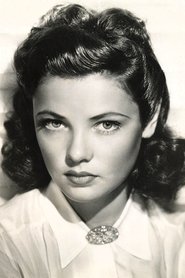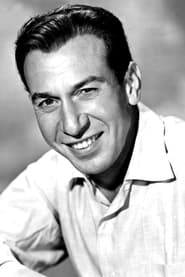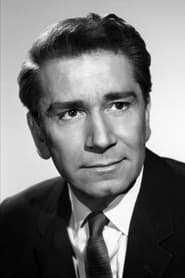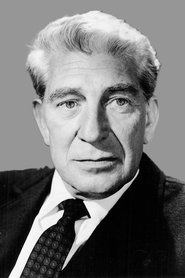A successful marriage is usually based on what a husband and wife don't know about each other.
An interesting and divisive film noir thriller directed by Otto Preminger and written by Ben Hecht (under the blacklist pseudonym Lester Barstow) and Andrew Solt. Adapted from the novel "Methinks the Lady" written by Guy Endore, the film Stars Gene Tierney, Richard Conte, José Ferrer, and Charles Bickford. Arthur C. Miller is the cinematographer and David Raksin, under the watchful eye of Alfred Newman, provides the music.
The plot sees Ann Sutton (Tierney), the wife of a successful psychoanalyst (Conte), arrested for shoplifting since she has some kleptomania issues. Just when it seems Ann is about to be thrust into a world of scandal, she is saved by smooth-talking hypnotist called David Korvo (Ferrer). Korvo, however, is not what he seems to be, and Ann soon finds herself involved in blackmail and murder and her marriage on the brink of collapse. Confused and emotionally torn, Ann is unsure whether or not she has committed a crime. It looks bleak unless her husband or the police can get to the bottom of the murky mystery.
Combining a psychological thriller core with overt melodramatics, Whirlpool has still to convince many of the film noir hoards as to its worth. Some critics find the concept of the story silly and hard to take, whilst others have gone a step further to suggest that Preminger and Hecht have merely remade Hitchcock's Gregory Peck starrer Spellbound (Hecht on screenplay duties there too) from four years earlier. Either way, and putting a noirish sheen on a Hitchcock movie is no bad thing by the way, Preminger's movie is a compelling little piece of cinema. The central theme of hypnosis as a weapon gives the film a dark edge and Preminger nicely portrays a world containing sympathetically flawed characters. While in the form of Ferrer's oily slick Korvo, film noir gets a most intriguing Mabuse/Freudian like villain of high entertainment value.
Tierney doesn't have to do much here, asked to portray confusion and a almost constant state of hypnotism, she delivers well enough whilst always remaining innocently sexy. Conte's woodenness as the husband oddly benefits the story, while also worthy of a mention is the ever watchable Charles Bickford as Lt. Colton, a thinking man's copper, Bickford keeps it serious as the daftness of the plot threatens to submerge and unhinge the drama.
Frowned upon by big hitting American critics, the film found support from notable Frenchies Rivette and Godard. It seems that like myself, they also liked the quirky and creepy nature of the beast. 7/10
This might well be my favourite role for José Ferrer as he portrays the hypnotist charged with treating "Ann" (Gene Tierney). She's a bit of a kleptomaniac and both she and doctor husband "William" (Richard Conte) are determined to find out just what, if anything, is in her past and triggering this behaviour. It's not as if they are poor or that she needs the things she is stealing... Anyway, the clearly manipulative "Korvo" (Ferrer) manages to inveigle his way into the couple's life and offers to help. Next thing, she comes to and discovers a corpse on the adjacent sofa. Did she kill someone? She has no idea and policeman "Colton" (Charles Bickford) isn't convinced by the increasingly far-fetched solutions being offered by an husband determined, at all costs, to see his wife off the hook. Now we have more of an inkling as to who has done what to whom, and why - but we also have to realise that it's all going to be very difficult to prove, even if the pursuing police and "Dr. Sutton" can happen upon any clues to the real solution at all. Otto Preminger takes his time to tell the story and Ben Hecht's under-stated screenplay allows the characters to develop quite intriguingly until what is, admittedly, a really disappointing denouement. For most of this, though, it's a better than average psychological thriller that touches on the embryonic nature of psychology as both a branch of medicine as well as being a tool for criminal detection.







